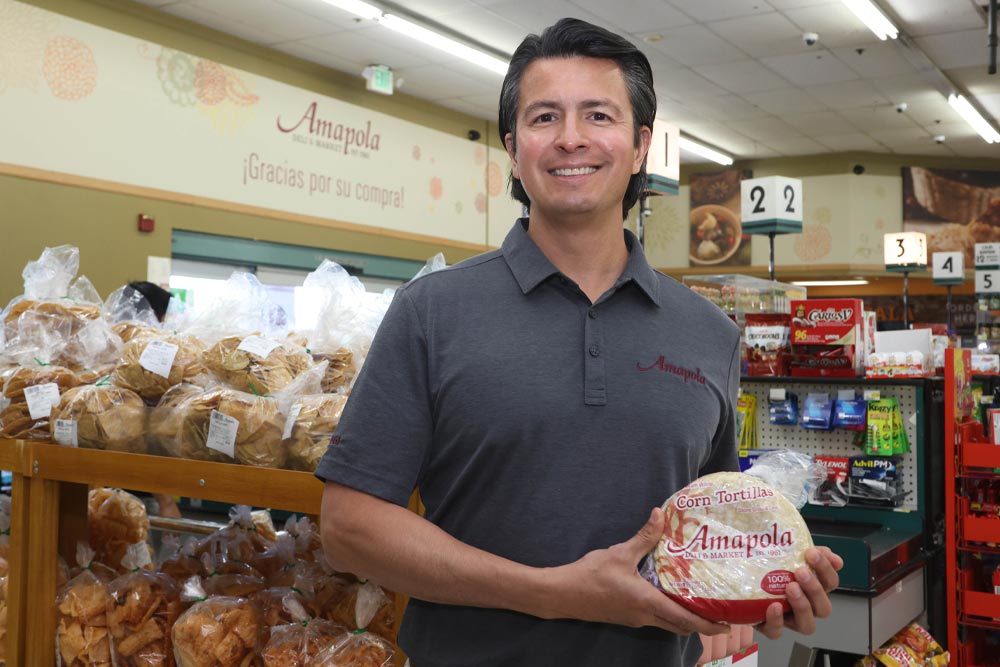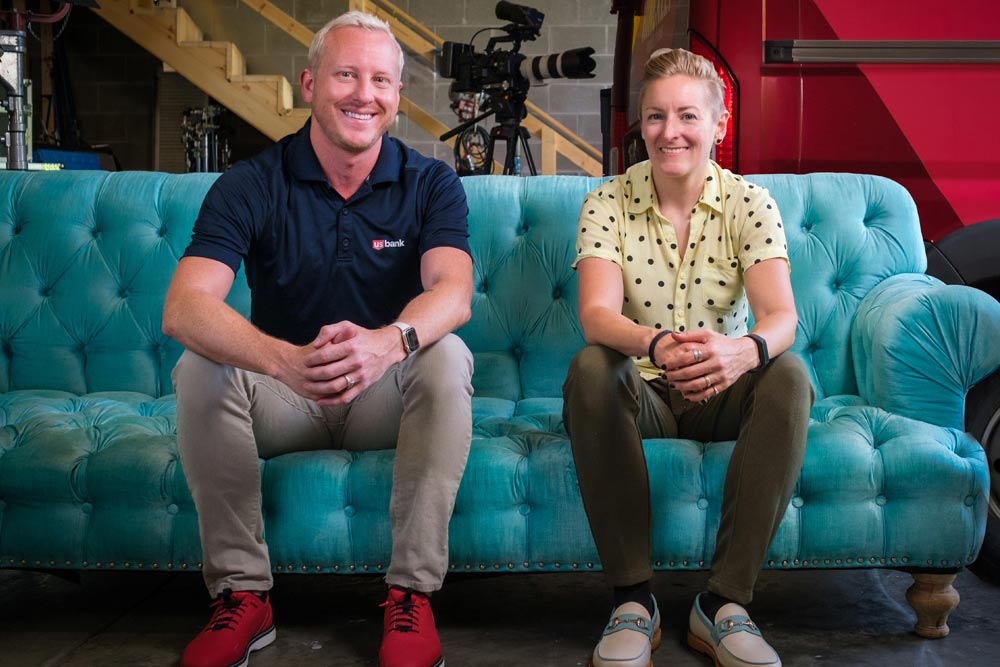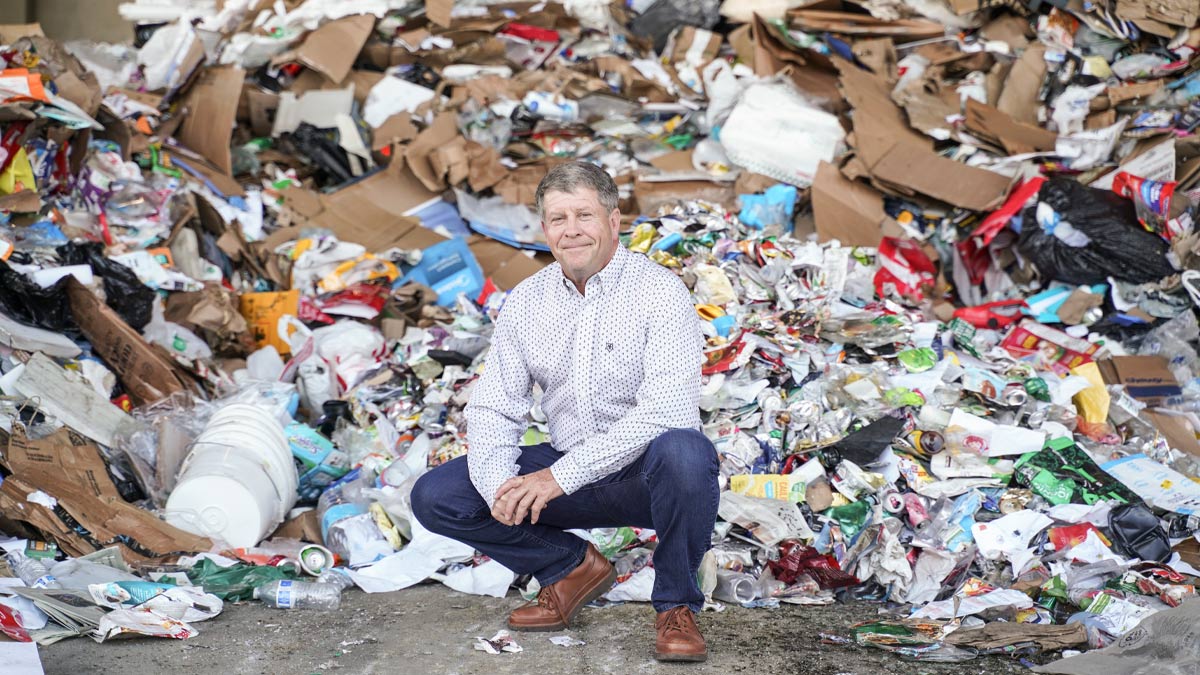Napa Recycling processes 300,000 tons of organic waste and 60,000 tons of recyclables annually
As the amount and scope of materials being recycled has grown over the years, so has longtime bank client Napa Recycling.
Napa Recycling began in 1990 and offered curbside recycling and organic composting services, said general manager Greg Kelley. It has expanded over the years to include services for all recyclable products and organic materials, including yard waste and food waste from residential homes and commercial kitchens.
“When we started in 1990, we were processing about 10,000 tons of organics and 15,000 tons of recyclables per year,” Kelley said. “Now, between our two composting sites, we do 300,000 tons of organic waste and 60,000 tons of recyclables.”
Napa Recycling employs 240 people throughout its companies, he said. That includes people who collect recyclables and organic waste, people who process it, people in customer service and more. It serves both residential homes and commercial businesses across different industries.
“The easy part is collecting recyclable material,” Kelley said. “The harder thing is to sort recycling to market specs and to truly recycle something to be used to make a new product.”
The company has seen a lot of innovation in the sorting and processing areas over the years, he said.
“Back in ’90s we were all manual hand-sorting,” Kelley said. “We eventually added screens to separate paper from containers, and now we have air classifiers that use optics to sort, and also have robots that sort. They basically use AI and learn as they go just as a human would.”
There have been innovations on composting organic materials as well, he said.
“We now do aerated composting where, basically, we’re blowing air into our piles 24/7 so it’s actively composting at optimal temperatures for 22 days, where in the past it would take about three months and never be at optimal temps except about 20 minutes a day,” Kelley said. “Not only are we making a better, mature product, we’re cutting emissions into the environment while doing it.”
The composted materials are sold as soil amendments to farmers, he said. Recyclable materials are sold to various manufacturers. For example, recyclable plastics, such as polyethylene terephthalate (known as PET) water bottles, are melted down and made into pellets that are sold to manufacturers to produce new products.
Napa Recycling’s relationship with U.S. Bank began in 2005 with predecessor company Union Bank.
“It’s been a great relationship for our company and our communities,” Kelley said. “The bank has treated us well. With their assistance, we have been able to use California municipal bonds for our major expansions.”
Napa Recycling partners with the U.S. Bank environmental banking group, which is part of Commercial Banking and specializes in serving waste management companies.
“Napa Recycling is a vital community partner providing waste management services, especially recycling and composting, to its communities to meet the State of California’s waste diversion goals,” said Hassan Salem, head of Commercial Banking. “We are happy to continue to support this client’s growth with specialized industry bankers from our Environmental Services Group."
Napa Recycling also uses U.S. Bank for other services that include accounts payable products, online banking tools, cash management solutions and more, he said.
“The bank has been a great partner for us over the years,” Kelley said.




